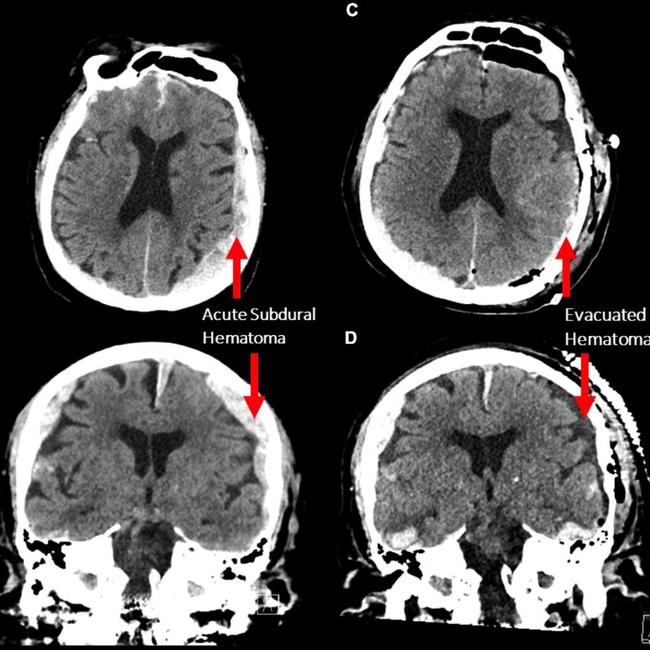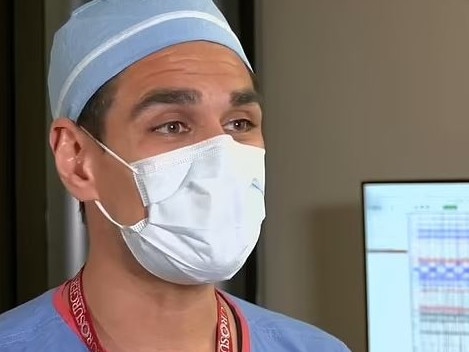First-ever brain recording of dying human reveals what happens as we die
Doctors have made a groundbreaking discovery about humans in an image taken during a neurological scan took an unexpected turn.
Health
Don't miss out on the headlines from Health. Followed categories will be added to My News.
It’s a question many of us will grapple with throughout our lives: what happens to us when we die?
Despite our appetite for an answer, it is one scientists and experts have been unable to reach conclusively – but new research has given fresh insights into the great mystery.
A study titled “Enhanced Interplay of Neuronal Coherence and Coupling in the Dying Human Brain,” has captured brain activity occurring both during, and after, the transition to death.
The discovery, published in the Frontiers in Aging Neuroscience journal, suggests that the human brain may not only remain active but may also be intricately co-ordinated during this crucial transition.
This discovery potentially proves the deathbed phenomenon often referred to as the “life recall”, a rare occurrence widely reported by those who have had near-death experiences (NDE).
About 8 percent of the Australian population have reported an NDE, according to a Melbourne study.
Those who have had a life recall, also known as “life review”, say they saw their entire life play out in a rapid manifestation of autobiographical memory.
Many describe it as seeing their entire existence “flash before their eyes”.
The “groundbreaking” imagery was actually discovered by accident when the team of scientists set out to measure the brainwaves of an 87-year-old patient who had developed epilepsy.
However during the neurological recording, he suffered a fatal heart attack – offering an unexpected recording of a dying brain.

In total, the neuroscientists captured 900 seconds of brain activity around the time of death, allowing them to see what happened in the 30 seconds before and after his heart stopped beating.
These revealed that in the 30 seconds before and after, the man’s brainwaves followed the same patterns as dreaming or recalling memories.
“Through generating brain oscillations (brain waves) involved in memory retrieval, the brain may be playing a last recall of important life events just before we die, similar to the ones reported in near-death experiences,” Dr Ajmal Zemmar, the lead researcher from the University of Louisville, Kentucky, said.
These findings challenge our understanding of when exactly life ends and generate important subsequent questions, such as those related to the timing of organ donation.’
Dr Zemmar and his colleagues published their data in 2022 but the medical journal has recently captured mainstream attention online.
“These finding were actually totally by chance, we did not plan to do this experiment or record these signals,” he told the BBC at the time.

But despite giving an insight into what happens to us when we die, he warned it isn’t conclusive evidence that we all enjoy our life “flashing” before our eyes when we pass on.
“If I were to jump to the philosophical realm, I would speculate that if the brain did a flashback, it would probably like to remind you of good things, rather than the bad things,” he said.
“But what’s memorable would be different for every person.”
But a 2013 study – carried out on healthy rats – supports the recent findings, after it reported high levels of brainwaves at the point of the death until 30 seconds after the rats’ hearts stopped beating – just like the findings with Dr Zemmar’s epileptic patient.
Describing he similarities between studies are “astonishing”, Dr Zemmar said he hoped the human case may open the door to other studies on the final moments of life.
“I think there’s something mystical and spiritual about this whole near-death experience,” Dr Zemmar said. “And findings like this – it’s a moment that scientists lives for.”
More Coverage
Originally published as First-ever brain recording of dying human reveals what happens as we die





